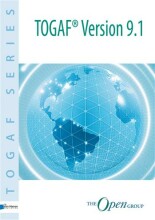Summary: History
- This + 400k other summaries
- A unique study and practice tool
- Never study anything twice again
- Get the grades you hope for
- 100% sure, 100% understanding
Read the summary and the most important questions on History
-
Digging Deeper Chapter 1
This is a preview. There are 13 more flashcards available for chapter 08/10/2014
Show more cards here -
In what year did the cinese discovered how to make paper?
AD 100 -
In wich year were there paper mills in Italy, Germany and France?
Ityaly 1275, Germany and France 1300 -
How did the chinese printed their books
By carving a whole page onto a single block of wood and printing from that -
What did Gutenberg do, in wich year and where did he live?
Germany, made letters out of lead in 1430's. He also used a printing Press so the imprint of the letters was better. -
What was the impact of Printing
Printing started a revolution in book production. Instead of making a book by hand 100ths of pages could be produced more quickly. As a result more books could be produced, The price for a book went down. More people started to read them and books and the ideas in it spread along Europe more quickly. -
What did the church think of printing at first... and later on
The first books that were printed were bibles. (Gutenberg Bible 1455) The Delft Bible was printed in 1477. Printing however became one of the drivers of huge religious changes. State and Church were less able to control ideas now books and ideas where not only accessible to who they wanted but for everyone. -
What was the role of the lowlands in printing
Antwerp becamen a great printing centre. Whe the Spanish took Antwerp in 1585 many printers moved to Amsterdam. In the 17th century more books were printed here than in the rest of Europe. In other places books were censored but the Dutch printers could print almost everything. -
In wich year was Erasmus born and where was he born?
1460's Rotterdam -
What was the influence of humanism in religion
in 1379 Geert Groote and Thomas a Kempis developed the idea of a personal nature of religion.
Each person could/should study religious books (bible), pray and live a good life. This would lead to salvation. Church and and Rituals were not important. Humanist thought Catholics added more and more rituals to Christianity that didn't belong their. They added pagan ideas (relics with power) to Christianity. -
Did erasmus wanted to break away from the Catholic church?
No he just wanted to reform it.
He didn't liked the fact Catholics believed in Saints, Spoke latin prayers without knowing the meaning and were forced to do pilgrimages. He said only God could pardon your sins and not the church. People didn't need a person between themselfs and God and could say there own prayers and read the bible
- Higher grades + faster learning
- Never study anything twice
- 100% sure, 100% understanding

































